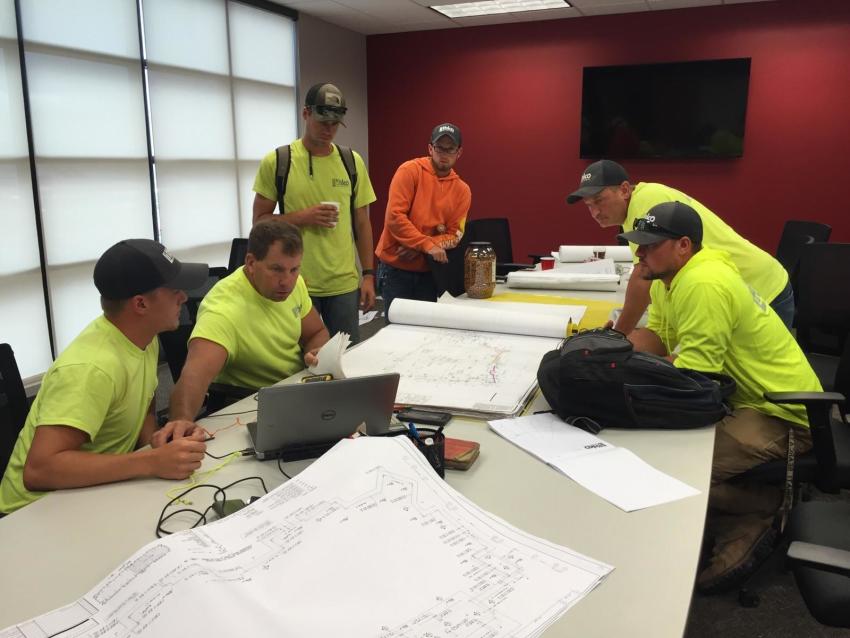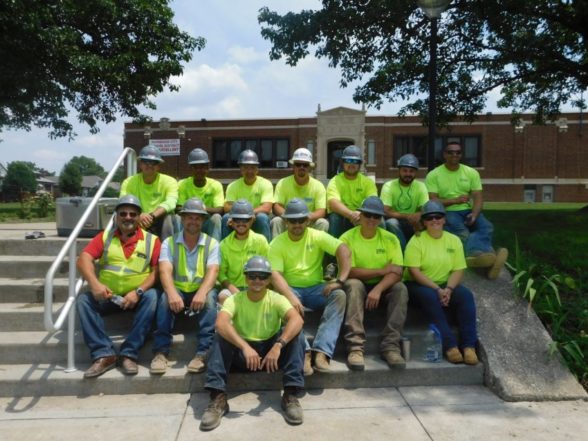Earlier this year, my son and I were pumping concrete for a city project. We were encasing sewer pipes with concrete in a 200-foot stretch bored under a section of the railroad-line near our city’s water treatment plant. Due to the scope of the project, we had several engineers from the city and the railroad company on site monitoring our every step. Along the way, I had an interesting conversation with one of the engineering firm’s representatives.
We discussed the need for people with clipboards to have more hands-on, real-life experience out in the field before they enter the workforce. That’s when the engineering-rep made a simple but profound statement that stuck me. He said, “It all looks good on paper…, but there’s a world of difference when you are out here doing the actual work.”
Most of us with calluses on our hands from working in concrete have difficulty respecting the people who are essential to our industry but who have very little exposure to what goes on out in the field. Civil engineers, architects, and project managers with excellent educations, seemingly lack some of the practical knowledge that can only be gained in the field.
The work they do isn’t easy, it requires great intellect and without their designs and planning we wouldn’t be working. Therefore, the solution to our mutual problems would be solved by offering more construction internships. My youngest son is in college studying to become a civil engineer, so never before has the necessity for internships been higher on my radar than now.
Lithko Contracting
I wanted deeper insights into what it takes to be successful with internships, so I reached out to one of the most impressive concrete organizations I know of, Lithko Contracting, of West Chester, OH, which shared some very wise and valuable information.

Lithko’s president Rob Strobel said, “It’s very important to keep a heavy influx of young construction talent to reach our growth goals. With a lot of talented people exiting the workforce, we need to get the younger generation of talent mentored by experienced coworkers so Lithko can continue to be a top player in the concrete industry. The best way to learn our industry is by doing the work, boots on the ground with strong mentors.”

Strobel shared why internships are a valuable part of their company’s culture, “Recruiting experienced industry talent only, is not sustainable,” he said. “We need to be able to grow talent within. If a company provides opportunity to learn and teach, they will be more likely to keep their workers.”
The typical internship with Lithko lasts three months, and some continue to work for Lithko part-time while in school. Their interns are shaped on several fronts: “Hands on experience in the field is the best way to learn,” said Strobel. “Even if a student has a desire to go into estimating, how would they know how to estimate production/schedule without ever doing the work? Concrete construction is a very team oriented environment. It shows interns how to work as a team.”
One of Strobel’s most striking comments was, “I’ve heard many interns say after a full summer in the field that they have a new level of respect for the men and women who work in the field all day.”

He then expanded the idea of the engagement interns experience. “Interns are assigned a mentor and receive feedback on their performance so they can learn in the moment and adjust. We expect them to come to work prepared to engage.”
If we want people to grow beyond book smarts, we must encourage more contractors to expand their internship programs. Internships are a win-win for the contractor and the student, and more importantly a big win for our industry.
Shared by Lithko, this article first appeared here on Concrete Construction.
About the Author
Craig Cottongim is a second generation finisher with over 20 years of experience working in concrete. He is a writer, speaker, leadership trainer, and the founder of Concrete Leadership Training.

